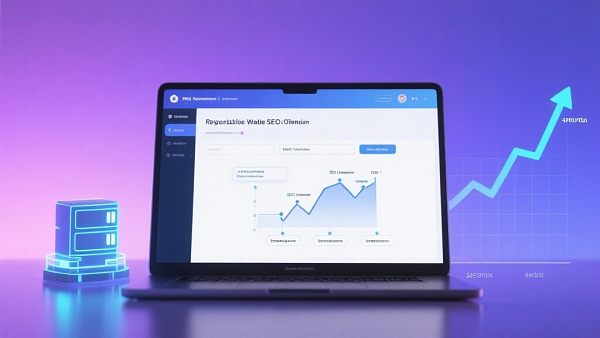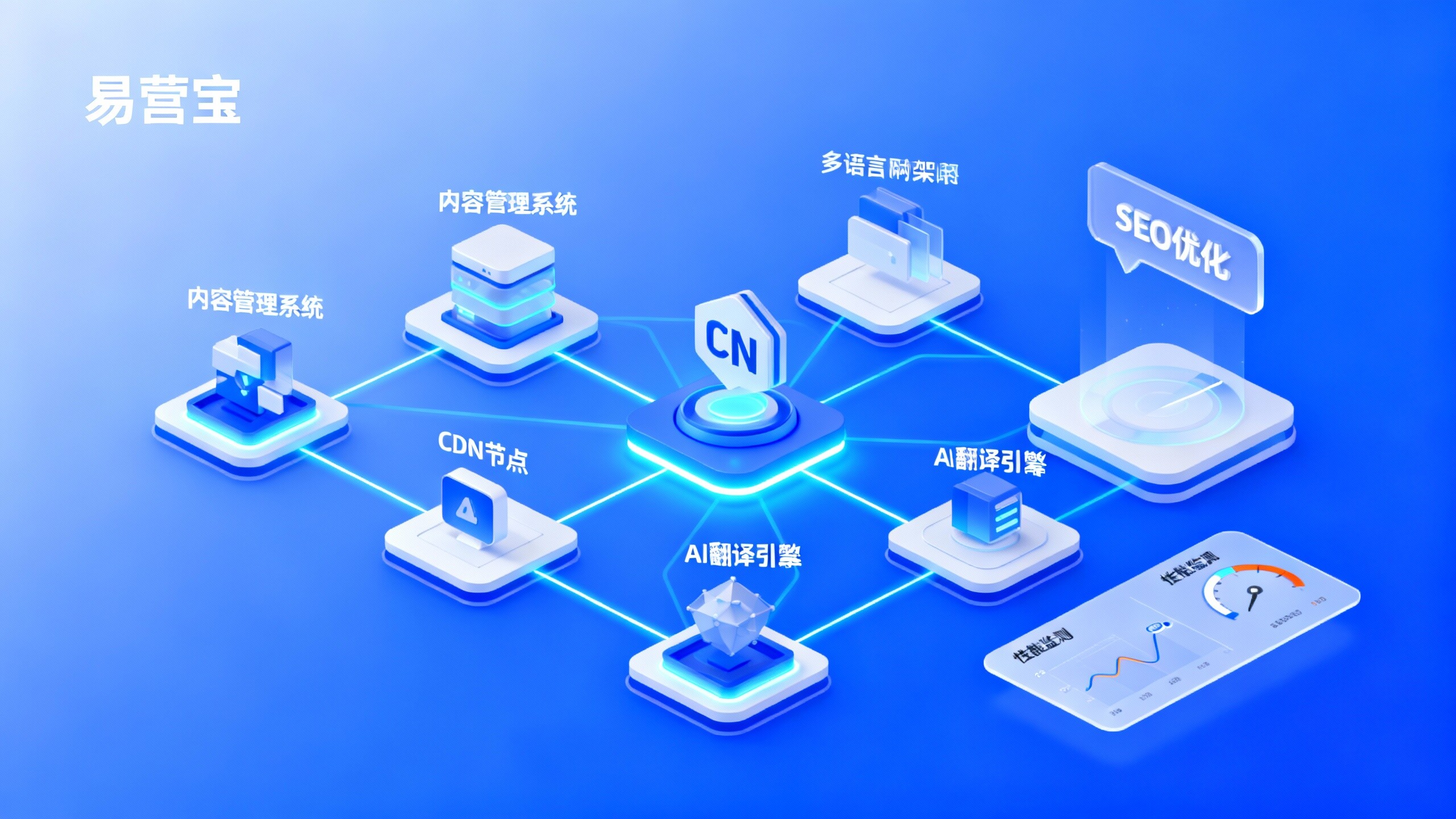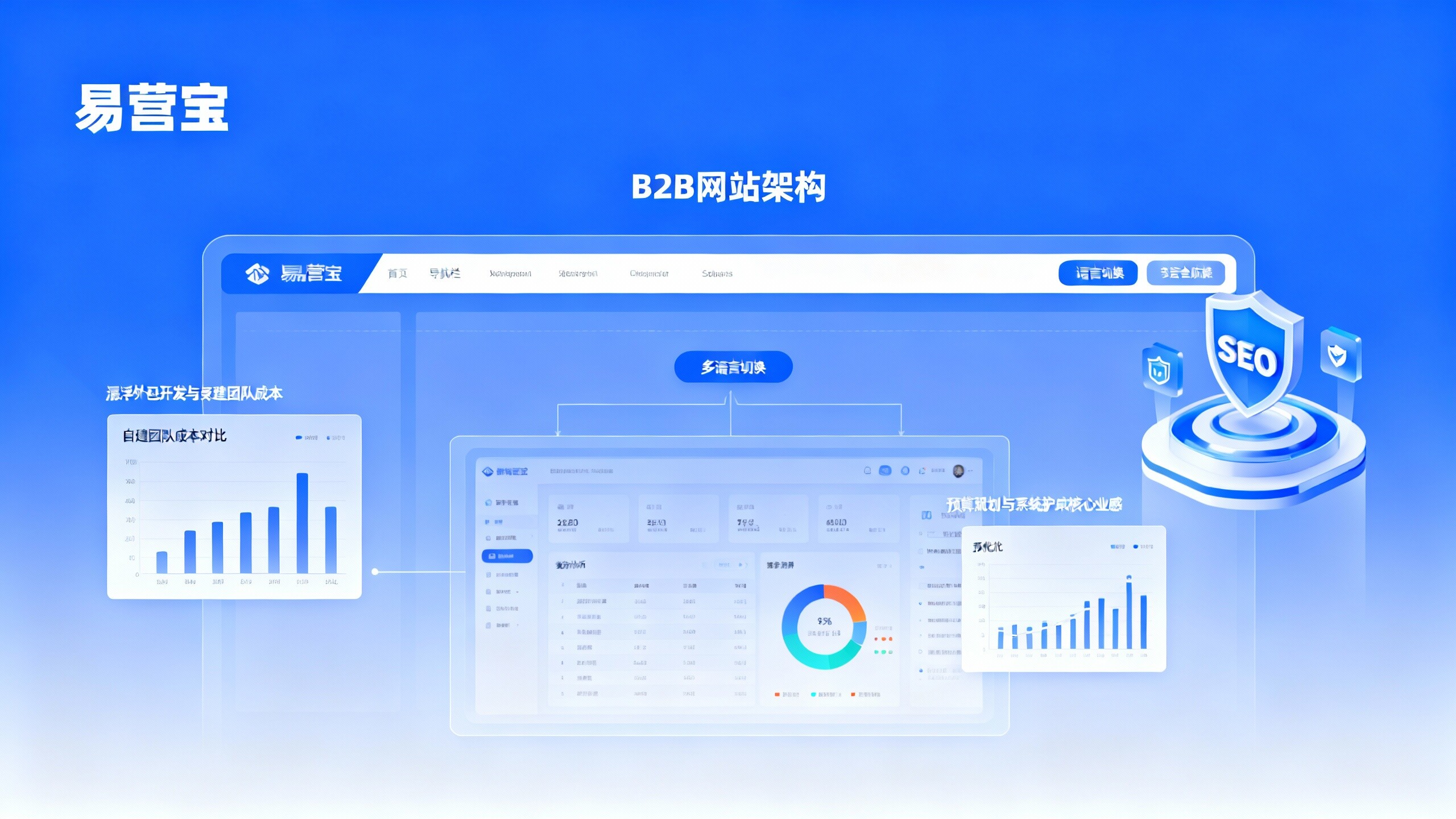Responsive Website SEO Optimization Practical Guide: Traffic Doubling Techniques
Introduction
This hands-on guide teaches you how to use EasyStore's AI-powered website building system for responsive website SEO optimization, including 301 redirect settings and SSL certificate installation, helping foreign trade independent sites achieve traffic growth. The article targets information researchers, users/operators, and technical evaluators, covering the definition, technical points, and implementation steps of responsive website SEO optimization. It combines EasyStore's AI-driven all-in-one intelligent marketing platform advantages to provide an actionable optimization checklist. You will learn how to complete SSL certificate installation, implement 301 redirect settings, optimize page performance and TDK while ensuring security and compliance, thereby improving the organic traffic and conversion rates of foreign trade responsive websites.

Definition and Technical Analysis (What is Responsive Website SEO Optimization)
Responsive website SEO optimization refers to the technical and content system optimization for search engines and user experience under a single codebase and adaptive layout. Core elements include HTTPS encryption (via SSL certificate installation), proper URL strategies (like 301 redirects and canonical tags), mobile-first rendering, and performance optimization meeting Core Web Vitals. For foreign trade websites, multilingual strategies (hreflang), server locations, and CDN acceleration are also crucial to reduce latency. EasyStore's AI website system features automatic SSL certificate issuance, global CDN nodes, and real-time SEO diagnostics, simplifying complex SSL configurations, certificate expiration alerts, and standardized 301 redirect setups to minimize human errors. This section not only explains the concept but also provides technical performance metrics: page load time, First Contentful Paint (FCP), Cumulative Layout Shift (CLS), and security standards (TLS 1.2/1.3). For technical evaluators, these are key quantitative indicators to assess independent site SEO optimization quality.
Application Scenarios and Comparative Analysis (Why Choose Responsive Over Other Solutions)
In foreign trade responsive website development, three common implementation approaches exist: responsive design, standalone mobile sites (m.example.com), and dynamic serving. Responsive design naturally excels in maintenance costs, link consistency, and crawl efficiency compared to standalone mobile sites (which double maintenance complexity and 301 redirect requirements) or dynamic serving (prone to errors and demanding server configurations). For independent foreign trade site SEO, responsive design reduces traffic loss from URL switching and improves mobile ranking stability. Combined with EasyStore's global server clusters across 7 continents and AI keyword expansion capabilities, it ensures loading speed while enhancing relevance for overseas search engines and users through localized language adaptation. Our observations show: AI-built sites with CDN achieve 40% faster page loads and 35% higher SEO scores on average—critical for businesses targeting foreign trade traffic growth. Technical teams should prioritize SSL certificate installation, 301 redirect setups, and multilingual SEO as mandatory checks, using automation tools to monitor configuration validity continuously.

Implementation Steps: From Basics to Advanced Responsive Website SEO Optimization Workflow
Below is a step-by-step checklist for users/operators, covering SSL certificate installation, 301 redirect settings, TDK and structured data, sitemap and robots, plus content and keyword strategies. Step 1: Deploy SSL—Enable automatic SSL certificate issuance in EasyStore's AI website system, verify domain ownership, enforce sitewide HTTPS, and confirm TLS versions and certificate chains are warning-free. Step 2: URL & Redirect Strategy—Centralize old URL 301 redirect management in the site backend, avoiding chained redirects while preserving canonical tags; permanently set 301 at server/CDN level for migrated pages. Step 3: Content & TDK—Leverage built-in AI keyword expansion and automated TDK generation tools to create semantically relevant, localized titles and descriptions targeting keywords (e.g., responsive website SEO optimization, foreign trade website SEO, independent site SEO optimization). Step 4: Performance Optimization—Enable CDN, lazy loading, WebP images, compress CSS/JS, and prioritize resource loading to meet Google Core Web Vitals. Step 5: Indexing & Crawl Control—Submit dynamically updated sitemaps to Google Search Console and Bing, using robots.txt to release important pages strategically. Step 6: Monitoring & Adjustments—Configure log analysis, 24/7 anomaly alerts, and use AI site diagnostics for weekly SEO health checks to create iterative optimization task lists. For technical evaluators, document these steps in SOPs with automated testing metrics for validation.
Client Case Studies, Cost Comparisons, and Procurement Guidelines (Practical References for Decision-Making)
Case Study: A mid-sized cross-border e-commerce business using EasyStore's AI website system with SSL certificates and sitewide 301 redirects achieved 1.8x organic traffic growth and 27% higher conversion rates within 90 days. AI keyword tools identified high-converting long-tail keyword clusters, while automated TDK generation slashed page launch timelines, saving significant labor costs. The table below compares key technical parameters and ad product performance for procurement decisions.
Procurement Guidelines: For foreign trade traffic and conversions, prioritize smart website systems supporting multilingual content, automatic SSL installation, global CDN, and AI capabilities. Secondly, verify if vendors are Google Premier Partners or Meta Official Agents, indicating API integration and channel support strength. Cost-wise, SaaS platforms typically have lower upfront costs but evaluate long-term SKU expansion fees and API call expenses to avoid operational cost spikes. As alternatives, businesses may consider static sites with third-party SEO tools, though this increases maintenance and compliance risks. Client cases show integrated services deliver faster results at lower costs, ideal for teams seeking rapid overseas growth.
Myth Clarifications, Trend Analysis, and FAQs (Supplementary for Information Researchers)
Myths: Many teams mistakenly believe responsive design alone guarantees mobile search priority; in reality, SEO also depends on content relevance, page performance, and security configurations (like SSL certificates). Another common error is frequent URL changes without proper 301 redirects, causing ranking losses and traffic drops. Trends: Over the next three years, search engines will demand higher mobile experience, page speed, and structured data standards, with AI-generated content and keyword expansion becoming常态. Smart website systems' automation and observability will become core procurement decision points. FAQs: 1) How to verify SSL installation? Use online TLS checkers or backend certificate managers to view chains and expiration dates. 2) Avoiding 301 errors? Test in staging first, document old-to-new URL mappings for traceability. 3) Multilingual SEO integration? Use dedicated language paths/subdomains with hreflang tags and AI-translation quality audits. Technical evaluators can create test cases based on this to validate changes with operations teams.

Why Choose Us & Contact Information
Why EasyStore? We are a global digital marketing service provider powered by AI and big data, holding Google Premier Partner and Meta Official Agent status. Our proprietary AI algorithms and global data platforms continuously optimize ad campaigns and website strategies. Choosing us grants access to integrated services—from AI website building (with auto-SSL), independent site SEO optimization, to automated ad and social media solutions. If you're evaluating foreign trade responsive website development or facing technical challenges like 301 redirect setups and independent site SEO, contact us for free diagnostics and implementation plans. Call to Action: Book a technical consultation now to receive customized optimization roadmaps and execution checklists, helping you achieve sustainable traffic growth.
- Campbell (name)
- free-standing station
- Intelligent website building system
- Multilingual SEO
- SEO optimization
- Intelligent website building
- AI translation
- Independent site SEO
- Foreign trade independent website
- EYB Intelligent Website
- SSL certificate
- Website Check
- Independent site SEO optimization
- Website seo optimization
- SEO diagnosis
- Facebook Ads
- responsive design
- Foreign trade website SEO
- SEO
- social media automation
- responsive website
- Responsive Website Development for Foreign Trade
- SSL Certificate Installation
- Responsive Website SEO Optimization
- 301 Redirect Settings
Related Articles
![How much does fast website indexing help SEO? Should general internet service companies invest in acceleration solutions? How much does fast website indexing help SEO? Should general internet service companies invest in acceleration solutions?]() How much does fast website indexing help SEO? Should general internet service companies invest in acceleration solutions?
How much does fast website indexing help SEO? Should general internet service companies invest in acceleration solutions?![What technical support is needed for international website development? How can general internet service enterprises build a multilingual architecture What technical support is needed for international website development? How can general internet service enterprises build a multilingual architecture]() What technical support is needed for international website development? How can general internet service enterprises build a multilingual architecture
What technical support is needed for international website development? How can general internet service enterprises build a multilingual architecture![Are B2B website development costs high? Should general internet service companies outsource development in their budget planning? Are B2B website development costs high? Should general internet service companies outsource development in their budget planning?]() Are B2B website development costs high? Should general internet service companies outsource development in their budget planning?
Are B2B website development costs high? Should general internet service companies outsource development in their budget planning?
Related Products








